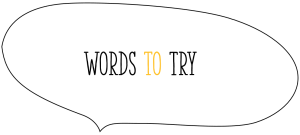27 Health
Rebecca Yoshizawa
 Social injustice is very unhealthy; social injustice kills people. Some people think that health is “all about biology” and that it can be objectively measured using quantitative analysis. For example, Body Mass Index, or BMI, is a ratio of a person’s weight and height, which supposedly correlates to their health status. This and other reductionistic approaches to defining health are problematic for several reasons.
Social injustice is very unhealthy; social injustice kills people. Some people think that health is “all about biology” and that it can be objectively measured using quantitative analysis. For example, Body Mass Index, or BMI, is a ratio of a person’s weight and height, which supposedly correlates to their health status. This and other reductionistic approaches to defining health are problematic for several reasons.

Where “healthism” describes the ideology that health is objectively measurable and universally understood, we argue that “health” is complex, dynamic, relativistic, and often subjective. Health inequalities are disparities among different social groups in rates of diseases/conditions, for which there are no known biological/genetic reasons. The social determinants of health are those factors that influence our health status, but do not have their origin in our “biology.” Instead, according to the World Health Organization, they are
the conditions in which people are born, grow, live, work and age, including the health system. These circumstances are shaped by the distribution of money, power and resources at global, national and local levels, which are themselves influenced by policy choices. The social determinants of health are mostly responsible for health inequities – the unfair and avoidable differences in health status seen within and between countries[1]
Thus, unequal distribution of health among social groups is not “natural” but the result of forms of systemic discrimination embedded in the functioning of society. Systems of social privilege and oppression play a fundamental role in our experiences of health and illness, such that we can understand health as a privilege, and ill-health as an outcome of intersecting oppressions.
Canadian society tends to take an individualized approach to health, frequently “blaming” people for their health woes. However, when we adopt an intersectional and biosocial understanding of health, we see that culture and biology are interlocked in continuous feedback loops; health is an index or expression of intersecting social structures that distribute power, privilege, and oppression.
 Healthism: ideologically motivated definitions of health, especially those that come from assumptions/stereotypes about groups of people
Healthism: ideologically motivated definitions of health, especially those that come from assumptions/stereotypes about groups of people
Social injustice: the consequences of social inequalities
Biosocial: a word to describe any phenomenon that has intersecting social and biological causes or effects
- World Health Organization http://www.who.int/social_determinants/sdh_definition/en/ ↵
ideologically motivated definitions of health, especially those that come from assumptions/stereotypes about groups of people
the consequences of social inequalities
a word to describe any phenomenon that has intersecting social and biological causes or effects

